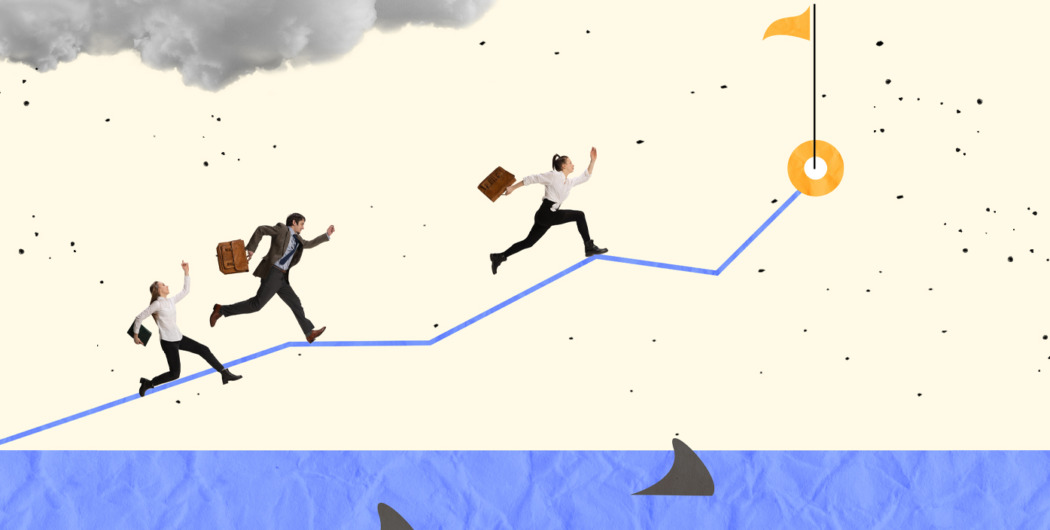

To become an expert at something — a skill or a subject — you need to spend 10,000 hours on it, according to an internationally renowned psychologist, “the world’s top expert on expertise,” Anders Ericsson. Some skills require less, others require more. But one thing is clear: if you want to become a pro trader, it’ll take a while. It could be months, but it’s more likely to be years.
There is no simple one-size-fits-all answer. Everyone’s experiences will be different because there are numerous factors in play. This article will break down some of these factors to help you make your own projections about your journey to success.
Factor #1: Effort
Like with most skills, the more effort you put into learning, the better results you’ll get. You should take the learning process very seriously if you want to start getting regular returns.
Make sure to educate yourself on the financial markets through different means — paper trading, books, guides, tutorials, videos, etc. The time you spend sharpening your trading skills and perfecting your strategies will most likely correlate with the success of your trade (although markets can be unpredictable).
Even if the market you’re trading on doesn’t move in your favor, a solid education and training will help you manage your positions even in undesirable conditions. Perhaps, you’ll even turn an unsuccessful trade into a successful one.
Factor #2: Goals
Everyone measures success differently. Are you looking to make extra income in the short term or are you hoping to retire with a decent amount of savings account decades into the future?
Your goals will affect your strategies, and your strategies will affect the time periods for your trades. Hence, if you want to achieve your objectives years down the road, you’ll take positions with lower risks and lower returns. Your potential returns will not amount to any significant income.
Alternatively, if you want to achieve your desired rate of return at the earliest possible time, it’ll mean higher risks and higher rewards. It is possible that you’ll miss your short-term targets. However, it won’t take years before you find out — just learn from your bad trades and try some more.
Factor #3: Strategy

Technical analysis strategies have different levels of complexity and, therefore, take varying amounts of time to learn. You can master a basic trend trading strategy and a couple of indicators and even get some returns rather quickly. But there is a cap on these returns. Basic strategies involve a lot of downtime and often miss potentially favorable entry signals.
In contrast, you can dedicate your time to learning extremely complex and sophisticated strategies. Unsurprisingly, it will take more time before you make any progress. But once you do, there is a chance of getting returns in a matter of hours and even minutes.

Factor #4: Previous knowledge and experience
Some people don’t come into trading completely unprepared. Those who have previous experience dealing with financial markets, economic background, analytical and statistical skills, or programming knowledge have an advantage over others. They will have an easier time navigating this new (or relatively new) activity and get on their feet earlier than inexperienced newcomers.
If you don’t have experience directly related to trading, don’t be discouraged. You should just be prepared for a steeper learning curve. And who knows: maybe your other professional or personal skills come in handy for trading.
Factor #5: Mentorship
By sharing their experience, knowledge, and connections, a mentor can support, advise and guide you both on a practical and emotional level. A mentor doesn’t instantly turn you into a pro — they are time-savers, not magicians. The role is to make many things easier for you. Problems that would require hours of searching online and reading tons of articles can be solved by a mentor in minutes. So, mentors are time-savers, not magicians.
If you don’t have an experienced trader in your circle of friends, trading education websites can take on this role. Just make sure to double-check any information fed to you and try new tricks in a safe environment.
Your journey depends on you
Everyone has a chance to go from beginner to a pro trader with consistent profitability. To get an idea of how long it will take, pay attention to the factors described above and factor them in. Yes, your trading success will be sometimes affected by circumstances beyond your control. But if you take care of circumstances within your control, you’ll maximize your chance to come out on top.








